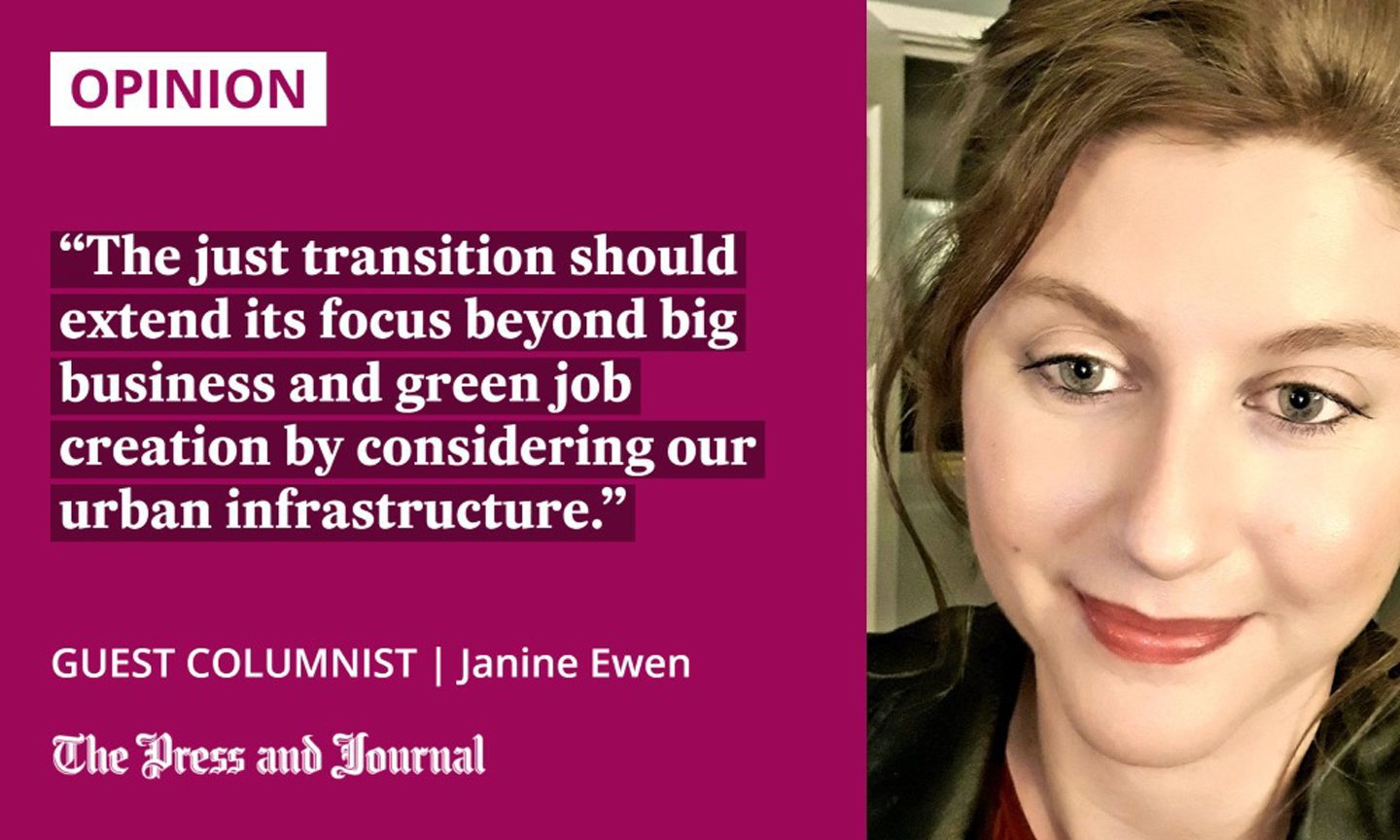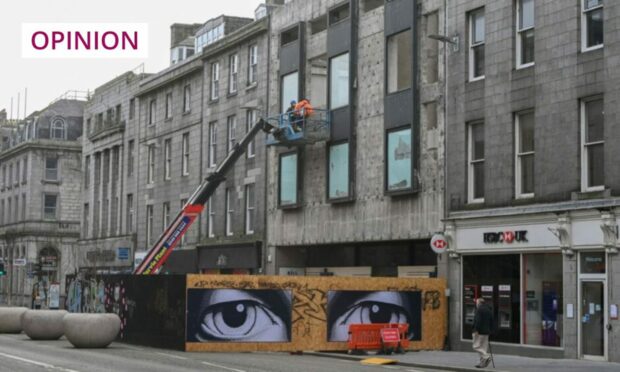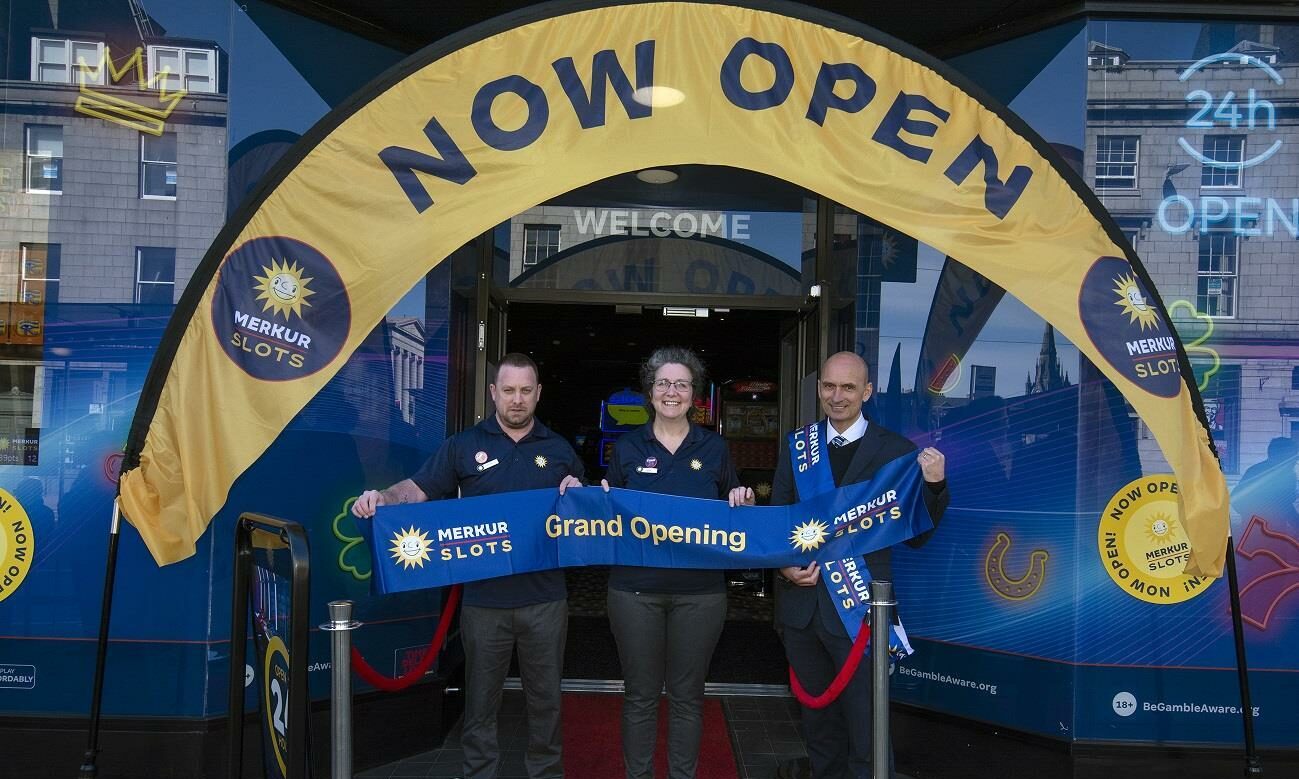Union Street was historically regarded as an inner-city pride and joy of Aberdeen.
Known as “The Granite Mile”, it accommodated thriving businesses and was synonymous with hustle and bustle. However, the public’s thoughts of the street are now most likely to be linked with disappointment, emptiness, and fond memories of what was in bloom and boom in happier times.
Taking a wider view in the here and now, I get a sense that an urban refreshment of regenerative change and reinstated value on Union Street is on most people’s minds.
Such regeneration would facilitate youth activities, support independent businesses, improve accessibility and more – and why not push for these possibilities?

Urban environments should try to surprise us by aspiring to fun. We are not there yet, but the creative imagination and conversation to improve going into the future exists.
Union Street is not entirely wiped out or completely absent of life; many still walk the street and use it to get to work. It is also populated by people who are extremely vulnerable, living on the margins in Aberdeen – those who have found a central urban space in which to walk, sit, beg and sleep due to homelessness, addiction, domestic abuse and unemployment.
Are we putting the most vulnerable in harm’s way?
I was surprised to read a celebratory article declaring that another gambling venue, Merkur Slots, will open on our struggling street. Are we putting the most vulnerable in harm’s way?
We know that Covid-19 lockdowns caused a surge of online bets and overwhelming debt for communities across the UK. And it is at these times, when the heaviness hits and opportunities fade, that gambling can sometimes be thought of as a beneficial option – a way to test one’s luck in resolving financial hardship, or to provide escapism from problems at home.
It is easy to understand why people take up gambling, and I do not judge them for it. However, it is too often a predatory industry that causes chaos and claims lives, leading to family breakdowns in the process.
This is a far-from-ideal reality, which should be a concern for us all. It is clear that gambling giants cashed in on the pandemic by encouraging people to gamble more online.
More gambling temptation is being presented when hardship and vulnerability are more rife than ever
I have therefore asked myself whether this new venue fits in with a regenerative promise for Aberdeen city centre. Is the opening of the venue being sold on the false promise of job growth when, in fact, its owners’ intentions are to exploit people during an already challenging time?
It seems a bit too convenient that more gambling temptation is being presented when hardship and vulnerability are more rife than ever.
A ‘just’ transition requires opportunity for everyone
Most of us who live in the north-east realise our lives have an aspect of gambling within them – we live in an oil-reliant region. The “just transition” conversation and its developments are allowing us to take a step back, offering opportunity for reflection and a chance to push through our own hopes for our future prosperity.
It also allows us to think about what we don’t consider “just”, and about taking back some level of control over our voices – something which all of the people in the shadows of oil and gas have had very little opportunity to do in Aberdeen.
To achieve its full potential as “just”, the transition should extend its focus beyond big business and green job creation by considering our urban infrastructure.
We must offer a design for an enjoyable living environment and protections for people on the receiving end of some of the most severe forms of inequality and harm that exist in our society.
Janine Ewen is an aspiring criminologist from the north-east of Scotland, passionate about a people-led just transition



Conversation